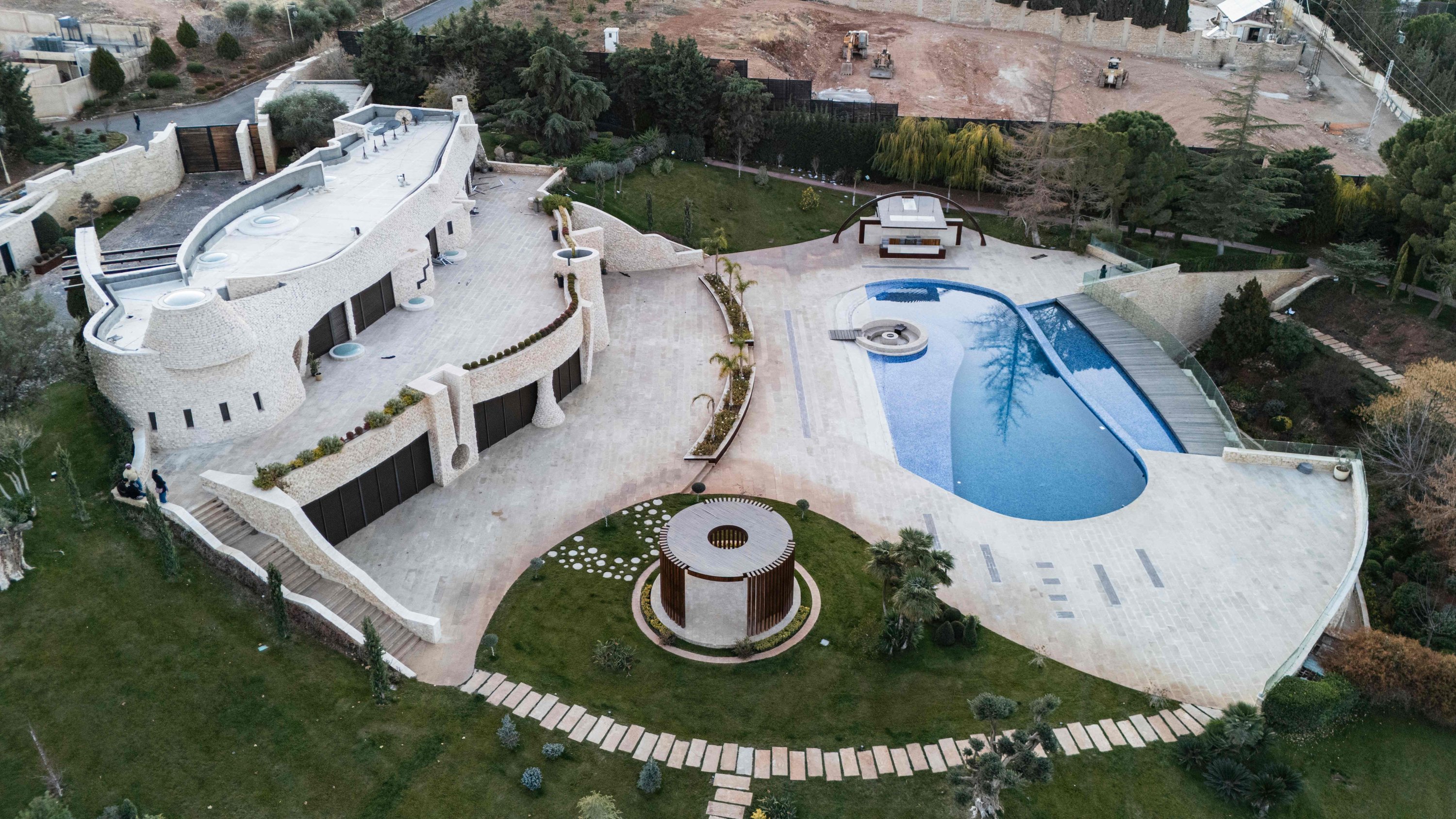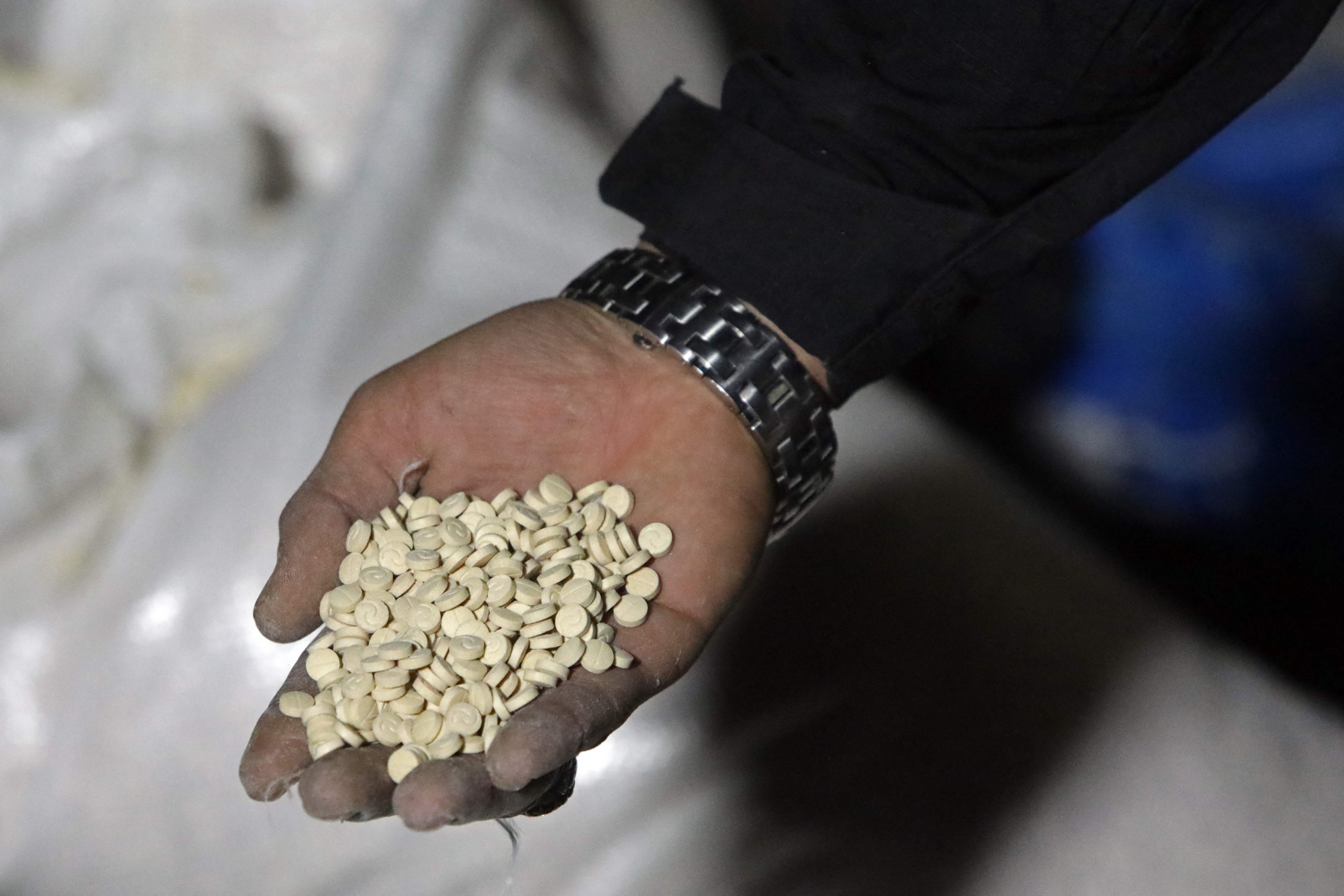© Turkuvaz Haberleşme ve Yayıncılık 2025
Journalists have uncovered documents hidden in fortified mountain tunnels and secret chambers, revealing a vast corruption network entrenched in the Syrian economy, involving drug trafficking, resource looting and extortion.
Today, many of the bases of the elite Fourth Division, formerly run by toppled Bashar Assad's feared younger brother Maher, lie looted.
However, documents left behind reveal how the man they called "The Master" and his cronies wallowed in immense wealth while some of their foot soldiers struggled to feed their families and even begged on the streets.
The center of this corrupt web was Maher Assad's private offices, hidden in an underground labyrinth of tunnels – some big enough to drive a truck through – cut into a mountain above Damascus.
A masked guard took Agence France-Presse (AFP) through the tunnels with all the brisk efficiency of a tour guide – the sauna, the bedroom, what appeared to be cells and various "emergency" exit routes.
But at its heart, down a steep flight of 160 stairs lay a series of vaults with iron-clad doors.
Maher Assad, 57, did not know of his brother's plans to flee to Russia and escaped separately, taking a helicopter to the Iraqi border, according to a senior Iraqi security official and two other sources. He then made his way to Russia, they said, apparently via Iran.
"This is Maher Assad's main office," the guard said, "which has two floors above the ground but also tunnels containing locked rooms that can't be opened."
In one corridor, a shrink-wrap machine – probably used for bundling cash – was abandoned next to a huge safe.
One document retrieved from the papers that litter the Fourth Division's Security Bureau farther down the hill shows they had ready cash of $80 million, 8 million euros ($8.35 million) and 41 billion Syrian pounds (over $533,000) at their fingertips in June. That was a perfectly normal cash float, according to papers going back to 2021.
"This is only a small sample of the wealth that Maher and his associates gathered from their shady business deals," said Carnegie Middle East Centre scholar Kheder Khaddour.
Their real fortune is probably hidden "abroad, likely in Arab and African countries," he said. Maher Assad was a shadowy, menacing figure in Assad's Syria, branded "The Butcher" by the opposition. His Fourth Division was the ousted regime's iron fist, linked to a long list of atrocities.
"The Fourth Division was a money-making machine," Khaddour added, preying on a land where the United Nations estimates that more than 90% of the population lives on just over $2 a day.
Khaddour said the Security Bureau handled most of the division's financial dealings and issued security cards for people it did business with to ease their movements.
A drug lord told Lebanese investigators in 2021 that he held a Fourth Division security card and that the Security Bureau had agreed to protect another dealer's drug shipment for $2 million, according to a statement seen by AFP.
AFP visited a Captagon lab linked to the division in December in a villa in the Dimas area near Lebanon's border, its rooms full of boxes and barrels of the caffeine, ethanol and paracetamol needed to make the drug.

While little seems to be left of the Fourth Division today other than its ransacked depots and headquarters, Syria expert Lars Hauch of Conflict Mediation Solutions (CMS) warned its legacy could yet be highly toxic.
"The Fourth Division was a military actor, a security apparatus, an intelligence entity, an economic force, a political power and a transnational criminal enterprise," he said.
"An institution with a decades-long history, enormous financial capacity and close relations with elites doesn't just vanish," he added.

"While the top-level leadership fled the country, the committed and mostly Alawite core (from which the Assads come) ... retreated to the coastal regions," Hauch said.
